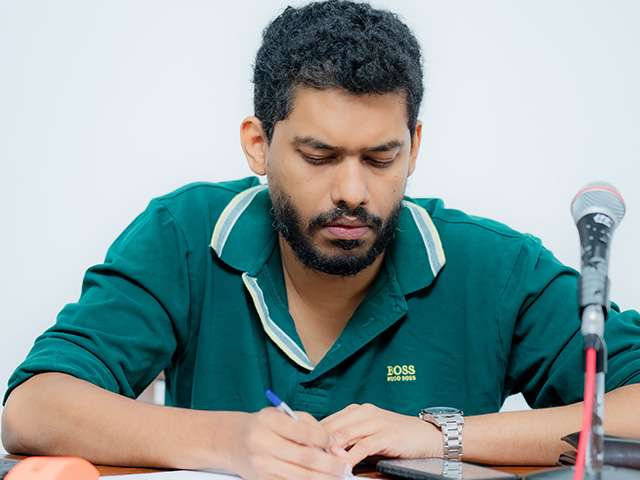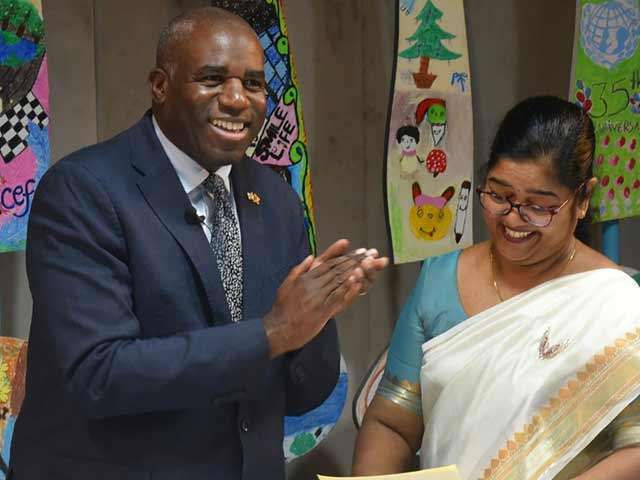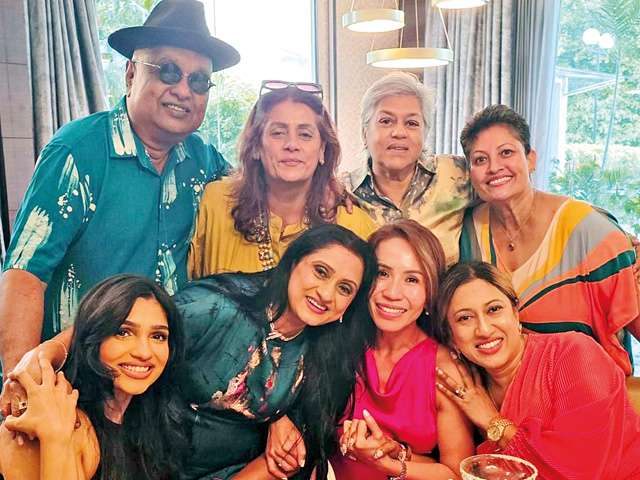Zohran Mamdani The Progressive Who Redefined New York City Politics
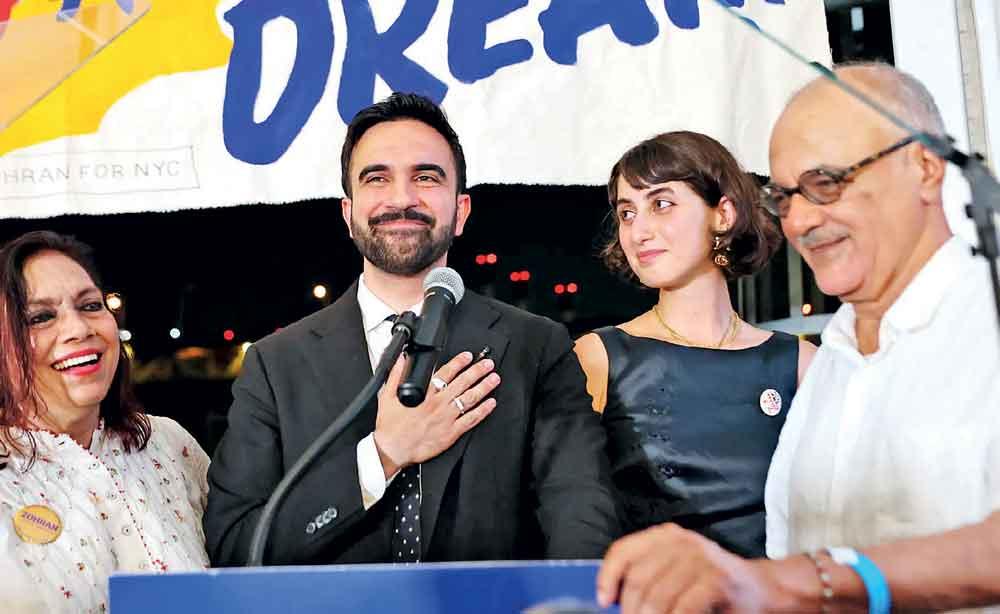
Zohran Mamdani was born in Uganda and raised in New York City. He is the son of renowned intellectuals: his father, Mahmood Mamdani, is a respected scholar, and his mother, Mira Nair, is the celebrated Indian-American filmmaker known for movies such as Monsoon Wedding. Growing up in a household deeply engaged in global politics and culture, Mamdani developed a keen sense of justice and social awareness from a young age. Before entering politics, he worked as a foreclosure-prevention housing counsellor in Queens, where he helped low-income homeowners fight eviction. That experience shaped his lifelong commitment to housing justice and economic equity. In 2020, he was elected to the New York State Assembly, representing District 36 in Queens, which includes Astoria, Ditmars-Steinway, and Astoria Heights. Mamdani identifies as a democratic socialist and is an active member of the Democratic Socialists of America. His political philosophy combines grassroots organizing with a vision of an equitable, inclusive New York that prioritizes working people over corporate interests.
Political Vision and Platform
From his first campaign for the State Assembly, Mamdani made clear that his politics would centre on affordability and social justice. His platform for mayor built upon those same themes but expanded them into a comprehensive vision for transforming city governance. Some of his major proposals included a rent freeze for all rent-stabilized apartments, fare-free public buses, universal childcare, city-owned grocery stores, and the creation of 200,000 units of deeply affordable housing. He also called for raising the city’s minimum wage to $30 an hour by 2030, financed through increased taxes on corporations and top earners. Throughout his campaign, Mamdani emphasized the moral urgency of addressing inequality in America’s largest city. “When I think of hope, I think of the unprecedented coalition of New Yorkers that we have built,” he said during his victory speech. “This is not my victory. This is ours.” Mamdani positioned himself as an outsider to establishment politics. During one televised debate against Andrew Cuomo, he declared, “I have never had to resign in disgrace. I have never cut Medicaid. I am not you, Mr. Cuomo.” That defiance helped him connect with younger voters, working-class families, and residents who felt alienated by years of centrist leadership.
The Road to Victory: The Primary Campaign
Mamdani announced his candidacy for mayor in late 2024. Initially viewed as a long-shot candidate against powerful figures like Andrew Cuomo, he gradually gained momentum throughout the spring of 2025. His campaign was fuelled by small-dollar donations and an army of volunteers. By June, polls showed him running neck and neck with Cuomo in ranked-choice projections. On June 24, 2025, Mamdani stunned political observers by winning the Democratic primary, defeating Cuomo by roughly twelve percentage points after ranked-choice tallies were completed. His campaign received donations from more than 20,000 individuals, with an average contribution of around $80. He was backed by several high-profile progressives, including Representative Alexandria Ocasio-Cortez, who endorsed him in early June and helped galvanize grassroots support across the city. Mamdani’s campaign leaned heavily on community organizing rather than corporate fundraising. Volunteers knocked on hundreds of thousands of doors and hosted neighbourhood assemblies to discuss issues such as housing, transit, and healthcare.
The movement energy surrounding his campaign recalled the 2018 insurgent campaign of Ocasio-Cortez, who similarly unseated an entrenched establishment figure.
The Election
The election took place on November 4, 2025, and the results were called the next day. Mamdani faced Andrew Cuomo, who ran as an independent under a “Fight & Deliver” ballot line, and Republican candidate Curtis Sliwa. When the votes were counted, Mamdani won with just over 50 percent of the vote, compared to Cuomo’s 42 percent and Sliwa’s 7 percent. The result represented a decisive shift in New York City politics. At age 34, Mamdani became one of the youngest mayors in the city’s history. He also became the first Muslim and first South Asian person ever elected to the office of mayor in New York City. In his victory speech in Astoria Park, Mamdani addressed a crowd of thousands. “Tonight, New York chose courage over fear, solidarity over cynicism, and hope over despair,” he said. “We proved that the future of this city belongs to the people who live and work here; not to the powerful few who profit from it.”
The Significance of His Win
Mamdani’s victory carries historic and political significance that reaches far beyond the five boroughs.
A Shift in Ideology
His election represents a clear ideological shift within the Democratic Party. New York City, long dominated by pragmatic centrists and technocrats, has now placed a democratic socialist at the helm. Political analysts have described his win as “seismic,” signalling that bold progressive ideas such as rent freezes, fare-free transit, and large-scale public investment can succeed in complex urban environments.
Representation and Identity
Mamdani’s election also marks a breakthrough for representation. As the city’s first Muslim and South Asian mayor, he brings a new dimension to what leadership looks like in America’s most diverse metropolis. For many immigrant families and young voters of colour, his win represents both visibility and validation in a city built by immigrants but often led by elites.
A Grassroots Model
Mamdani’s campaign demonstrated the growing power of grassroots organizing. His team reportedly mobilized nearly 100,000 volunteers; a number unprecedented in New York City mayoral politics. By relying on small donations and neighbourhood-based organizing rather than corporate funding, his campaign offered a model for a new kind of municipal politics rooted in people power.
National Implications
Because New York is the nation’s largest city, its politics often set trends for the rest of the country.
Mamdani’s win is already being discussed as part of a broader national resurgence of the progressive movement. His success challenges the notion that left-wing platforms cannot win major elections and may influence upcoming state and federal races.
Challenges Ahead
Winning an election is one thing. Governing a city of nine million people with a $100 billion budget is another. Mamdani will face significant challenges in turning his ambitious agenda into reality.
Limited Executive Experience
At 34, Mamdani has limited executive experience compared with long-time politicians like Cuomo. Managing New York City’s sprawling bureaucracy and balancing its massive budget will test his leadership and political skill.
Funding and Feasibility
His most ambitious proposals, such as fare-free transit, a rent freeze, and large-scale affordable housing, will require new revenue sources and the cooperation of the state legislature in Albany. Business groups and real estate developers have already voiced concern over his proposed tax increases on corporations and top earners.
Relationship with the State
New York City’s mayor must work closely with state leaders to implement most large initiatives. Given Mamdani’s left-wing politics and the state’s more moderate leadership, clashes are likely. Building alliances without compromising his principles will be one of his biggest tests.
Balancing Progressive Ideals with Pragmatism
Mamdani will also have to navigate the realities of maintaining public safety, supporting economic growth, and ensuring basic city services run smoothly. Many moderates will be watching closely to see whether his administration can blend progressive ideals with effective governance.
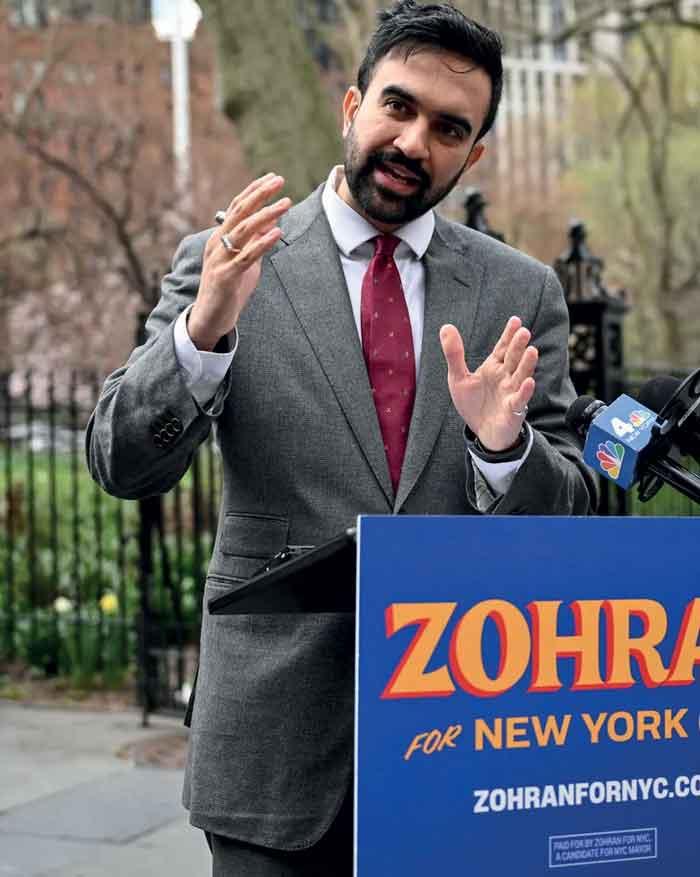
Managing Expectations
Because Mamdani’s campaign made bold and specific promises, expectations among his supporters are sky-high. If his administration struggles to deliver quick results, he risks disappointing the very movement that brought him to power.
What This Election Says About New York
Mamdani’s victory reflects deeper shifts in New York City’s social and political landscape.
A City Demanding Affordability
The soaring cost of living has become the defining issue for New Yorkers. Rents, transit fares, and basic goods continue to rise faster than wages. Mamdani’s focus on affordability resonated strongly with voters across boroughs and demographics.
A New Generation of Leadership
Mamdani’s success highlights a generational transition in city politics. Younger voters increasingly prioritize climate action, racial justice, and economic fairness. His age, energy, and authenticity helped connect him with these voters in ways traditional politicians could not.
The Power of Communities of Colour
Immigrant and working-class neighbourhoods turned out in large numbers for Mamdani. His multilingual campaign, speaking Spanish, Hindi, Urdu, and Bengali at community events, helped build genuine trust with diverse communities that often feel overlooked.
The Decline of Political Dynasties
Andrew Cuomo’s defeat underscored the waning influence of old-guard politics in New York. Voters were ready to move beyond the scandals and power plays that had dominated state politics for years. Mamdani’s clean record and activist background stood in sharp contrast.
Ranked-Choice Voting as a Catalyst
The city’s ranked choice voting system played a crucial role in Mamdani’s primary victory. It allowed voters who might have split among other progressive candidates to rally around him as their second or third choice, giving him the edge once tabulations were complete.
Zohran Mamdani will take office on January 1, 2026. His first months will be pivotal. His transition team is expected to focus on staffing, setting budget priorities, and building early partnerships to enact his policy goals. He has promised to begin with achievable “day one” actions, such as expanding bus priority lanes and launching a rent relief task force. These early wins could help build public trust while larger structural changes take shape. Observers predict that Mamdani’s mayoralty will redefine what progressive governance can look like in a major American city. If he succeeds, New York could become a national model for how to balance social equity with urban vitality. If he struggles, critics will point to his tenure as proof that idealism cannot govern a complex metropolis. Either way, Mamdani’s victory has already reshaped New York’s political imagination. It has shown that in a city of immense wealth and deep inequality, a message rooted in justice, solidarity, and hope can still triumph.



